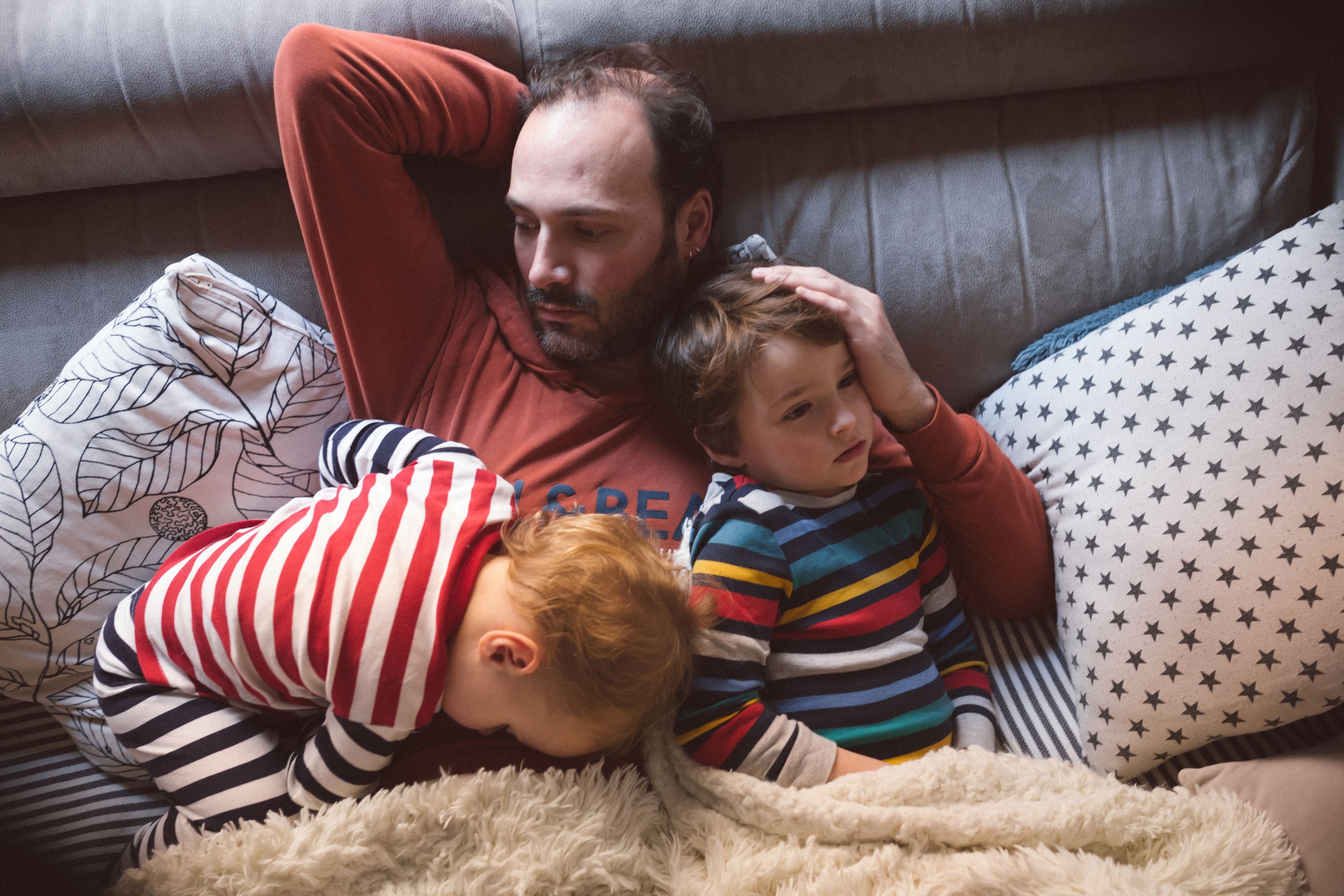Finding winter days tough? You're not alone - over half of parents say it's the hardest time of the year, and kids aren't fans either - try these 5 ideas to get through it
Here's how your family can fight the winter woes, after a study shows 58% of parents find it the hardest time of the year


More than half of parents find winter the hardest time of the year, and kids are affected too. But one expert has shared five ways your family can shake off the winter slump.
January can be a tough time for parents for many reasons. The days remain short and cold - making the school run feel like even more of a challenge as children return after the Christmas break - so it's no surprise that the winter weather has many families looking for ways to cope with the dark mornings and mood-boosting products that will help them beat the winter blues.
If you're feeling so down that it's affecting your work and relationships you may be suffering from seasonal affective disorder (SAD), a type of depression that comes and goes in a seasonal pattern. While SAD can be difficult to manage, you're not alone in this experience. In fact, the NHS estimates that 1 in 15 people - including children - will experience seasonal affective disorder (SAD) each year.
Package holiday provider Holiday Best surveyed parents and found that 58 per cent say winter is the hardest time of year to look after their family. In addition, 76 per cent of parents find it much more difficult to keep children entertained in the colder months, and 53 per cent say they find parenting in winter a hassle with having to remember enough warm clothing for everyone.
Meanwhile, more than one in four (28 per cent) British parents said they suffer from winter blues often, with a majority (62 per cent) experiencing a lack of motivation as their top symptom. Over a third (38 per cent) reported experiencing unhappiness, sadness, or depression.
But it's not just parents who are affected by the dark and dreary days, with 79 per cent saying their children much prefer summer to winter and over half of parents (55 per cent) noticing their children are more subdued and less energetic during the winter months.

Top 5 symptoms of 'winter blues' in children
- Lack of motivation (40 per cent)
- Lack of energy/tiredness (38 per cent)
- Not wanting to go outdoors at all (34 per cent)
- Being more irritable (33 per cent)
- Lack of concentration (26 per cent)
Holiday Best has partnered with Dr Radha, a medical doctor and expert in mental health and wellbeing, to share her top tips on how to keep the family healthy and happy throughout the winter months.
Parenting advice, hot topics, best buys and family finance tips delivered straight to your inbox.
She said, "Anticipating experiences may also bring us more happiness than having material things. This can be lots of small, simple things, like a family movie night at the weekend, or a big event in the future - like a summer holiday. It's worth getting out your diary, sparking your imagination, and planning something lovely to look forward to!"
Expert tips to fight the winter woes
- Find the light - It’s great to get as much natural sunlight as you can. Try to get outside during the daylight hours and fit this into your routine so that you stick to it regularly. You should also try to make your indoor surroundings as light as possible and sit near windows if you are working or relaxing for an extended period of time.
- Get moving - Regular exercise and getting active can help boost your mood. Small simple changes like using stairs rather than a lift at work or going for a lunchtime walk can add up. Make sure it’s something you enjoy and can have fun with, because then you’ll be more likely to stick to it. Try doing something with a friend or a class to make it social too.
- Manage stress - Stress can have an impact on our physical, mental, and emotional wellbeing. Try different techniques like having some time for self-care, talking it through with people you trust, and getting the support you need. Find practical solutions to things that are worrying you and use simple breathing exercises to feel calmer.
- Plan things to look forward to - Having lots of small simple things or a few big events scheduled in your diary to look forward to can reduce our stress levels and boost our mood and wellbeing. It is easy to forget to plan or the demands of life make it hard to do so, but if we proactively sit down and plan or book some lovely activities in advance, we can help ourselves feel better.
- Connect - Our relationships and healthy, frequent and meaningful connection with others, friends, family, colleagues and neighbours are a key factor in our ability to deal with tough times. Talking things through with them, activities to experience together and making new memories can all help.
If you're finding this time of year a challenge, we've put together some handy guides to help out. Find out how to wake up and how to recover from a bad night's sleep with these expert tips, or check out these foods that give energy.

Ellie is GoodtoKnow’s Family News Editor and covers all the latest trends in the parenting world - from relationship advice and baby names to wellbeing and self-care ideas for busy mums. Ellie is also an NCTJ-qualified journalist and has a distinction in MA Magazine Journalism from Nottingham Trent University and a first-class degree in Journalism from Cardiff University. Previously, Ellie has worked with BBC Good Food, The Big Issue, and the Nottingham Post, as well as freelancing as an arts and entertainment writer alongside her studies. When she’s not got her nose in a book, you’ll probably find Ellie jogging around her local park, indulging in an insta-worthy restaurant, or watching Netflix’s newest true crime documentary.